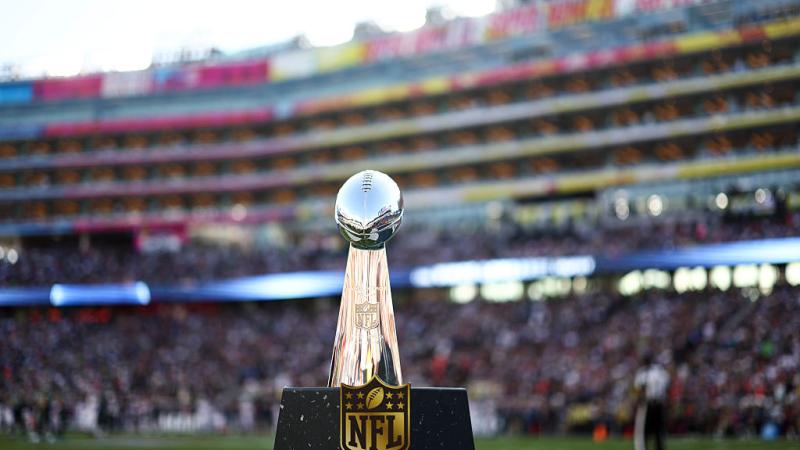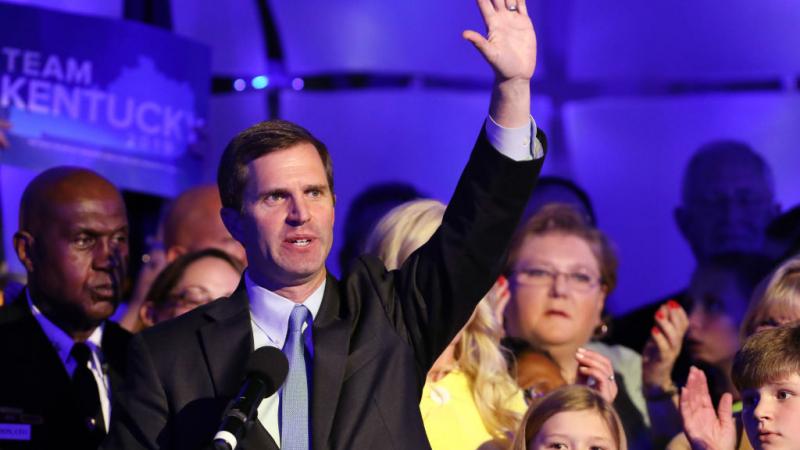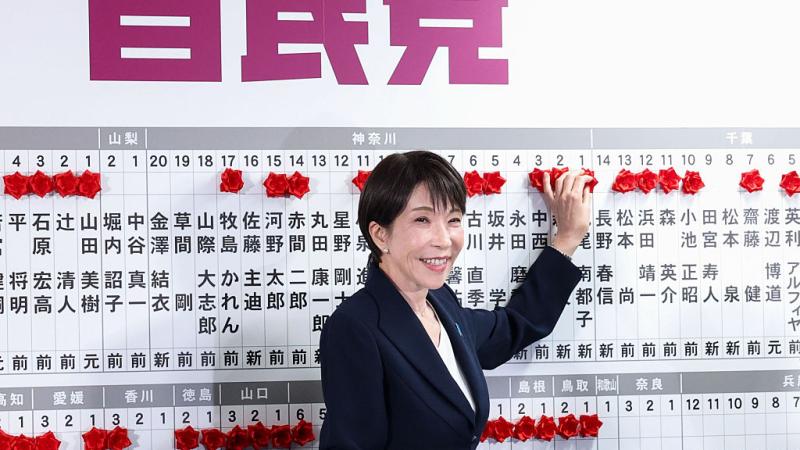Black intellectuals raise money for working-class whites falsely tarred as racists
Civil rights activist Bob Woodson scolds peers who "pursued strategies to enrich themselves" instead of lift up vulnerable people.
When the factories closed, many blue-collar workers got jobs in the hallowed halls of higher education, one of the few remaining workplaces that would offer them benefits packages.
The problem? Now they had to put up with the heightened sensitivities of college students and bureaucrats, according to Robert Woodson, the civil rights veteran and anti-poverty activist.
The Woodson Center founder told Just the News he was already concerned about the "level of intimidation that exists among working-class white people" when Smith College branded a cafeteria worker and janitor as racist on the word of an "elite black student."
But the summer 2018 incident at the elite women's college, whose "eating while black" narrative was recently contradicted by a New York Times investigation, pushed Woodson over the edge.
Last month his center's 1776 Unites project brought together more than 40 black intellectuals, calling on Smith College to make amends with the falsely accused service workers and halt its "forced" and "accusatory" anti-bias training.
Signatories included Columbia University linguist John McWhorter, Brown University economist Glenn Loury and syndicated columnist Clarence Page, who appeared in Woodson's recent panel discussion on desegregating poverty.
With the help of Smith whistleblower Jodi Shaw, an administrative staffer who quit in protest of the college's allegedly hostile environment for whites, Woodson's coalition has helped raise about $14,000 for the two employees, Jackie Blair and David Patenaude.
Woodson and Shaw each donated $1,000 to each worker, and "Hillbilly Elegy" author J.D. Vance — another participant in Woodson's panel discussion — promoted the fundraisers as well.
The Smith incident reinforced the 84-year-old's longstanding disillusionment with the civil rights movement, he said in a phone interview.
"A lot of the people who suffered and sacrificed didn't benefit from the change" 50 years ago, while a few activists ran for office, spent trillions on poverty programs and "pursued strategies to enrich themselves."
Woodson highlighted Rep. Maxine Waters' pricey Los Angeles home, Rev. Al Sharpton's private jet and Black Lives Matter co-founder Patrisse Cullors' real-estate binge. "A rich Marxist!" he chuckled, referring to Cullors' declared political identity.
The volley against Smith College is not the first in a planned campaign to highlight class discrimination at elite institutions, however, Woodson clarified.
Because Smith is "really representative of a problem that is countrywide," it made sense to speak out in this case to show that "not all black people are victim-oriented."
A spokesperson for Smith told Inside Higher Ed that "some are trying to leverage this incident to promote their own assault on diversity and equity initiatives."
'I'm watching this being perverted by social justice warriors'
Student Oumou Kanoute's public accusations against Blair and Patenaude — whom she wrongly identified as the janitor who reported her unexplained presence in a shuttered dorm lounge — first fell apart in an external investigation commissioned by the college that found no discrimination toward Kanoute.
Smith President Kathleen McCartney still claimed the college could not "rule out the potential role of implicit racial bias," even though Blair and the unidentified janitor had followed its own protocols.
She didn't publicly apologize to the employees, whose identities and photos were now in the news, and service workers were soon forced to undergo anti-bias training. The training left Patenaude more sure of "money privilege" than "white privilege," he told the Times. Woodson called such training the "height of snobbishness."
"I've led demonstrations, went to jail in pursuit of justice for all, and I'm watching this being perverted by social justice warriors" such as Kanoute, he told Just the News.
"She is making false claims of racism, and then has a rant on Facebook trying to make herself a racial martyr at the expense of hard-working blue-collar people," Woodson said.
Kanoute did not respond to Just the News queries to Columbia University's School of Social Work, where she's a research assistant intern, or the ACLU of Massachusetts, whose racial justice director Rahsaan Hall spoke on her behalf to the New York Times. Kanoute deleted or hid her Facebook page, where she shared favorable coverage of the incident, sometime after Thursday night when Just the News viewed it.
The March 22 letter to President McCartney from 1776 Unites, which released an African-American history curriculum last fall, tore into the college for immediately assuming that its food and janitorial workers were "guilty of the vile sin of racism."
It forced them to "publicly 'cleanse' themselves through a series of humiliating exercises in order to keep their jobs," and when the external investigation cleared the two workers, "merely doubled down on the shaming of its most vulnerable employees."
Signatories who participated in the civil rights movement were "fighting for equal treatment under the law," the letter said. "We didn't march so that Americans of any race could be presumed guilty and punished for false accusations while the elite institution that employed them cowered in fear of a social media mob."
They challenged President McCartney to provide the "evidence" she cited as the basis for Smith's anti-bias training. Woodson told Just the News that McCartney's "very cavalier" response simply referred back to the report that cleared the service workers.
The college just wanted to "purchase innocence at the expense of these workers," who now face a dilemma, Woodson said: Do they apply the rules when a black student commits a violation? "That's a hell of a place to put people in."
He's not sure yet whether the pushback against Smith will convince other mistreated service workers to come forward, but his group is hearing "rumors."
Whom has diversity training helped 'except for the people doing the training'?
Going forward, 1776 Unites will continue highlighting the harm of what Woodson called "race grievance training," which he considers an impediment to upward mobility.
"It always benefits those at the top" to generalize about race, he said, citing Delta among corporations that have started using racial quotas that primarily benefit well-off blacks. "What does that have to do with working-class black people?"
Woodson is just as critical of diversity and inclusion bureaucracies in higher education. Its advocates are "hard-pressed to say where is the proof" that the training has "improved the life of anybody except for the people doing the training."
Though Blair remains a Smith employee, she is raising money for legal expenses related to possible action against the college, as well as for therapy and medical bills related to her lupus, which was exacerbated by the false accusation.
She told visitors to her GiveSendGo page this week that the crowdfunding site's payment processor had deactivated her account as a "high risk for disputes," and directed them to her PayPal account.
Patenaude left the college because the publicity spurred by Kanoute worsened his anxiety disorder so badly that he couldn't work. His GoFundMe page says he's now on permanent disability, though Smith told Inside Higher Ed he's still employed.















